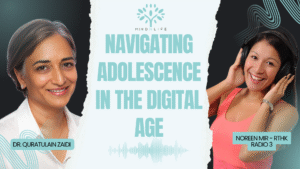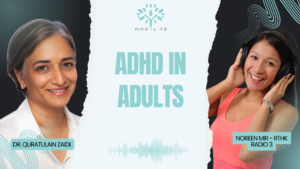I was recently asked to talk to teenagers about the impact of social media on teens, and the affect that too much screen time might be having on them. One question I posed was this: “In one hour, how much time do you spend working on your device, and what do you do for the rest of that time?”
They were very honest about their use of time on screen, and these figures are unlikely to come as a surprise to you: on average, teens spend 10 to 15 minutes doing schoolwork – the rest is spent on social media, chatting or gaming.
Not only is social media distracting these teens and impacting their learning, it is destructive for them emotionally. How many friendships go sour as a result of misunderstandings in text messages? It’s been said that only 7 percent of communication is about the words used; 93 percent of it is how you say the message – the nuances in tonality and body language that are missing from a written text message. Then there’s the complexity of omitting punctuation, which can lead to further ambiguity and misunderstanding. Studies show that emotions can be communicated much more accurately and effectively when we are face to face and able to see each other’s body language.
Teens are constantly distracted by the need to be up to date with what’s going on on social media; how popular they are is measured by how many “likes” they get on their status and who comments on their posts. They’re also under immense pressure to get instant replies from their peers; if they don’t, these kinds of thoughts can arise:
“My friend is upset with me.”
“Did I do something wrong?”
“They hate me!”
And it gets even deeper than that when they start thinking:
“Let me check when they were last online.”
“Oh my god, they’ve been ignoring me while chatting to others!”
“I’ll send a WhatsApp message to our other friend to ask if they’ve said anything about being upset with me.”
Another question I posed to the group of teens when I addressed them was this: “Why not just pick up the phone to ask for clarification?” Their answers were along these lines:
“I don’t want to come across as needy”
“That would be so uncool!”
“You do not call and clarify.”
Why are teens so attracted to these forums? Why do they spend so much time there when it can be so detrimental to them? In short, social media gives them a false sense of community, and in their stage of development, teens are looking for groups to identify with – they want what gives them the sense of freedom where they can share their deepest darkest secrets within the community. This often has unhelpful consequences. Studies show that almost 40 percent of internet users between 18 and 35 years of age have regretted posting personal information about themselves at some point.
So how should we behave online? One way is to ask these questions before you press the “Send” or “Post” button:
- Am I okay with everyone seeing this?
- Does it actually represent what I mean to communicate?
- Is it offensive?
- Am I reacting to something someone has said, and do I want to make my reaction public?
- Is this really something I want to share, or is it just me venting?
- Is this an appropriate forum to emotionally dump on?
If there does happen to be a miscommunication, pick up the phone to call and clarify the issue privately, instead of getting the whole online community involved.
What about parents? What can they do to help? I recently read an article saying that we need to do five key things every day to improve our mental wellbeing: connect with others, be active, be curious, keep learning and give to others. A good conversation delivers all five, which is as good for our mental health as five portions of fruit and vegetables a day are for our physical health. Teach your children effective communication by engaging in conversation with them. Support them and talk to them so they can learn the art of conversation; once learnt, this skill is invaluable.

Dr. Quratulain Zaidi (BSc. Hons, MSc, MSc, PhD) is a mother and a member of the British Psychological Society and British Association Counselling & Psychotherapy and abides by the Ethical Framework for Good Practice in Counselling and Psychology. She has lived in Hong Kong and Singapore for 12 years. She specialises in assisting families with issues including parenting, teen issues, Cybersafety, marriage guidance, post natal depression, stress and anxiety disorders, depression, bullying, eating disorders, OCD and self-harm. She is an expert in educational assessments and learning challenges in children, for example ADHD, ADD, Dyslexia and ASD.
(as published in expatliving.hk)







